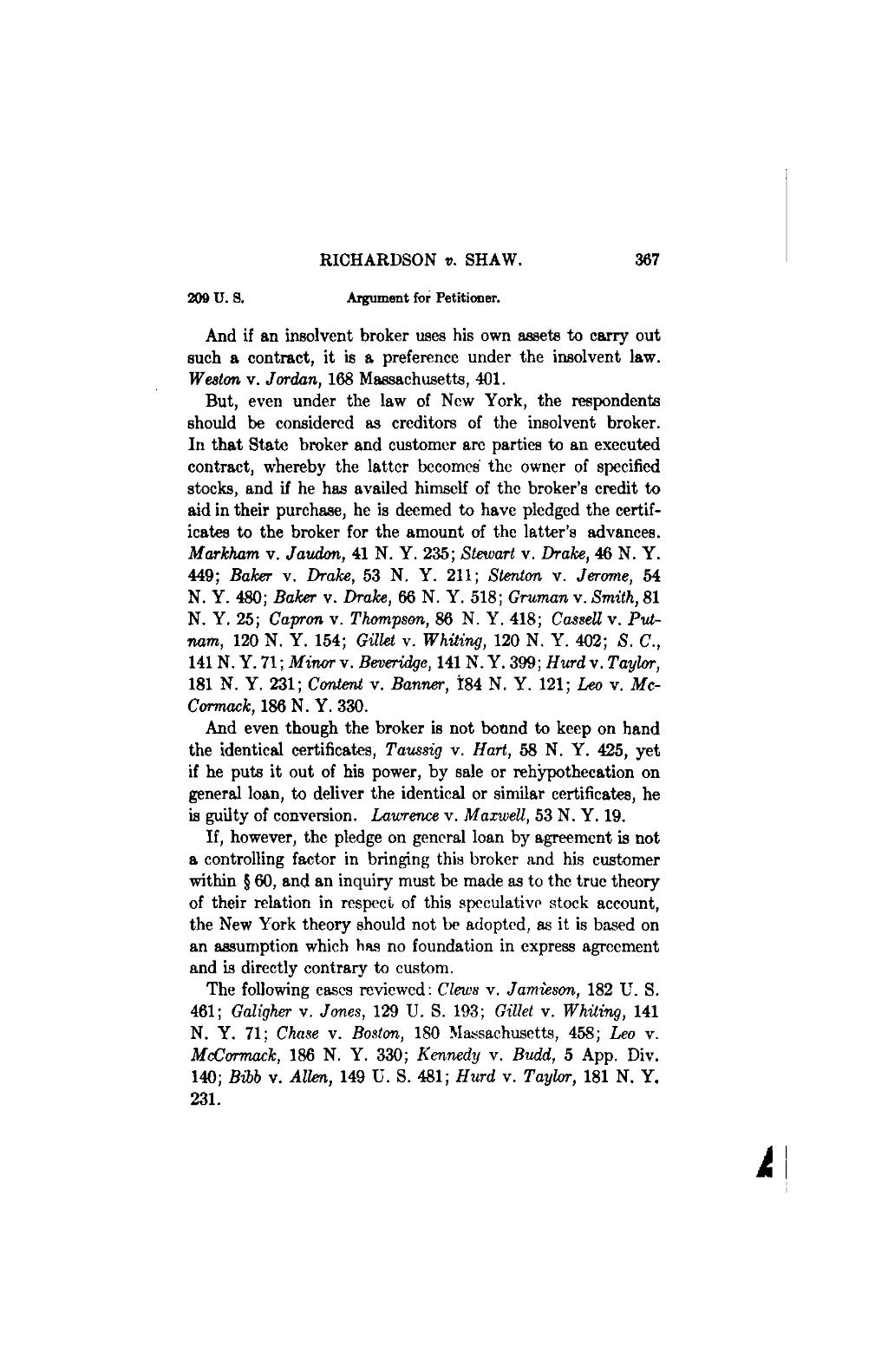?09 U.S. Argument fo? Petitioner. And if an hnsolvent broker uses his own assets to carry out such a contract, it is a preference under the insolvent law. W?ton v. Y?r&n, 168 Massachusetts, 401. But, even under the law of New York, the respondents should be considered as creditors of the insolvent broker. In that State broker and customer are parties to an executed contract, whereby the latter becomes' the owner of specified stocks, and if he has avalled himself of the broker's credit to aid in their purchase, he is deemed to have pledged the certif- icates to the broker for the amount of the latter's advances. M?k?m v. Ya?, 41 N.Y. 235; Stuart v. ?ake, 46 N.Y. N.Y. 25; Capron v. Thompson, 86 N.Y. 418; Cassell v. Put- ham, 120 N.Y. 154; Gillet v. Whitinq, 120 N.Y. 402; S.C., 141 N.Y. 71; Min?r v. Beycrime, 141 N.Y. 399; Hurd v. Taylor, 181 N.Y. 231; Content v. Banner, ]?84 N.Y. 121; Leo v. Mc- Cormack, 186 N. Y. 330. And even though the broker is not bound to keep on hand the identical certificates, Taussig v. Hart, 58 N. Y. 425, yet if he puts it out of his power, by sale or reh?potheeation on general loan, to deliver the identical or similar certificates, he is guilty of conversion. Lawrence v. Maxwell, 53 N. Y. 19. If, however, the pledge on general loan by agreement is not a controlling factor in bringing this broker and his customer within �, and an inquiry must be made as to the true theory of their relation in respect of this speculative stock account, the New York theory should not be adopted, as it is based on an assumption which hs?s no foundation in express agreement and is directly contrary to custom. The following cases reviewed: Clews v. Jamkson, 182 U.S. N.Y. 71; Chase v. Boston, 180 Massachusetts, 458; Leo v. McCormack, 186 N.Y. 330; Kennedy v. Budd, 5 App. Div. 140; Bibb v. Allen, 149 U.S. 481; Hurd v. Taylor, 181 N.Y. 231.
�
